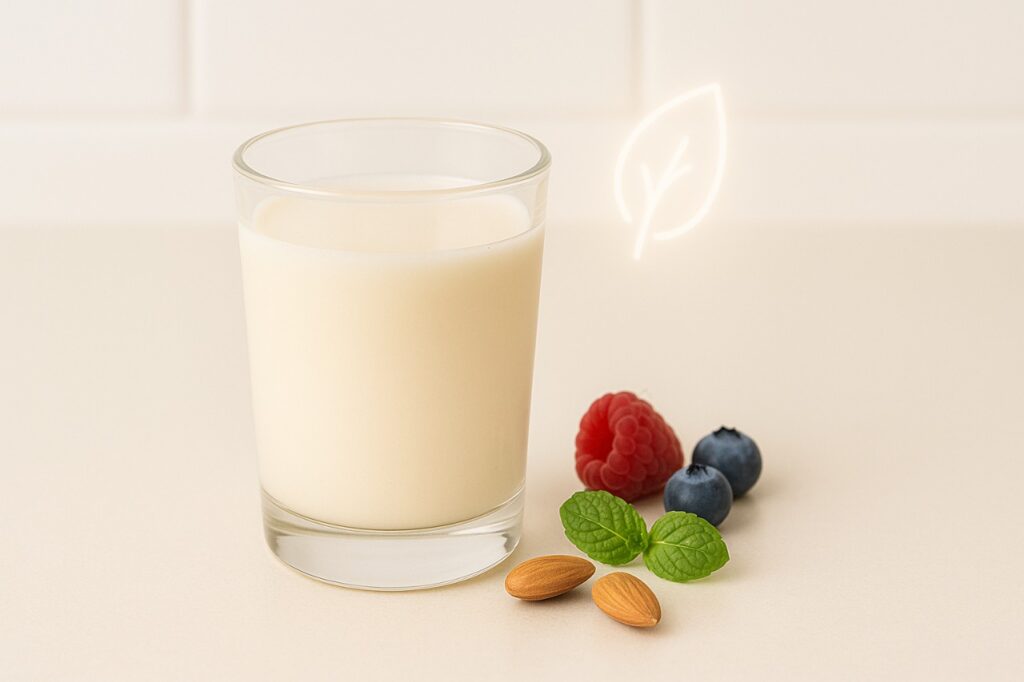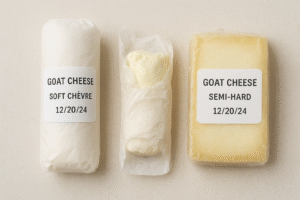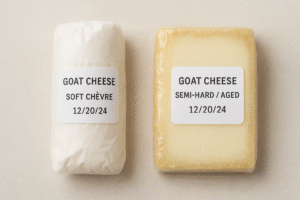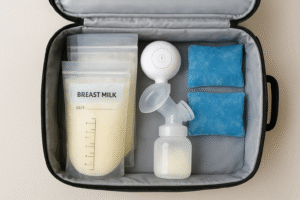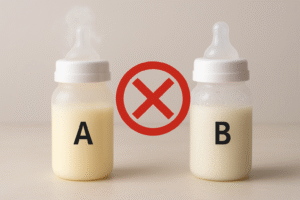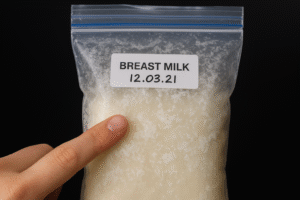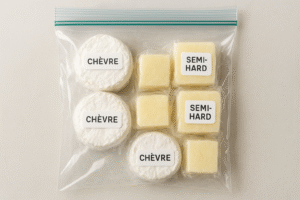Why People Are Switching to Goat’s Milk
Across the United States, more and more families are choosing goat’s milk as a healthy and natural alternative to cow’s milk. It’s smooth, creamy, and easier to digest — especially for people who struggle with mild lactose intolerance. Goat’s milk is now widely available in grocery stores and farmers’ markets, making it a convenient, nutrient-rich option for daily use. But is goat’s milk really good for you? Let’s explore its benefits, nutritional facts, and how it compares to traditional cow’s milk.
👉 Learn more about What Does Goat Milk Taste Like? before you decide which type fits your lifestyle.
Goat’s Milk Nutrition Facts
A single cup of fresh goat’s milk provides a well-balanced mix of protein, fat, and essential vitamins. It contains about 9 grams of protein, 10 grams of fat, and 11 grams of natural carbohydrates. Goat’s milk is also rich in calcium, vitamin A, and potassium — nutrients that support bone strength, healthy skin, and proper hydration. Because of its natural composition, it offers slightly more calcium and vitamin A than cow’s milk, making it a perfect choice for growing children and active adults.
Top Health Benefits of Goat’s Milk
Goat’s milk is easier to digest because its fat and protein molecules are smaller and softer than those in cow’s milk. This allows your body to absorb nutrients faster and reduces bloating or discomfort. It’s also rich in natural prebiotics that help maintain a healthy gut microbiome, improving digestion and immunity. The healthy fats in goat’s milk, especially medium-chain fatty acids, provide quick energy instead of being stored as body fat.
Another great benefit is its immune-boosting minerals such as selenium and zinc, which protect your body from common infections. Many people also notice improved skin health after regularly consuming goat’s milk because it naturally contains lactic acid and vitamin A — both known for promoting clear and hydrated skin.
Goat’s Milk vs. Cow’s Milk
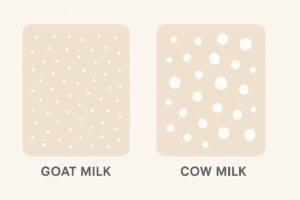
While both types of milk are nutritious, goat’s milk stands out for people with mild sensitivities. It has slightly less lactose, which means it’s gentler on the stomach. The taste is mild and slightly sweet, with a creamy texture that blends beautifully in coffee or smoothies. Cow’s milk, on the other hand, is a bit sweeter but contains heavier long-chain fats that can be harder to digest for some people.
In short, goat’s milk is the better choice for easier digestion, smoother texture, and higher mineral content, while cow’s milk remains more neutral in taste and more widely used.
👉 Want to know how long goat milk stays fresh? Read How Long Does Goat Milk Last? (U.S. Storage Guide).
When Goat’s Milk May Not Be Ideal
Even though goat’s milk is full of nutrients, it’s not suitable for infants under 12 months unless it’s specifically made as infant formula. People with serious dairy allergies should also talk to a doctor before making the switch. In rare cases, some individuals might still react to the proteins found in goat’s milk, so moderation and awareness are important.
Buying and Storing Goat’s Milk Safely
To get the best quality and taste, always choose certified, pasteurized goat’s milk from trusted brands or local farms. Store it in the refrigerator below 38°F (3°C) and use it within five to seven days of opening. If you prefer freezing, use BPA-free or glass containers to maintain freshness. Never keep goat’s milk in open or unsealed bottles, as exposure to air can quickly change its flavor and texture.
Trusted Health Sources
For scientific insights, you can visit Healthline: 9 Health Benefits of Goat Milk and Mayo Clinic: Dairy Nutrition Facts & Guidance. These resources offer verified nutrition data and safety tips recommended by healthcare professionals.
FAQ: Common Questions About Goat’s Milk
Q1: Is goat’s milk better for lactose-intolerant people?
Yes. Because it contains slightly less lactose and smaller fat molecules, it’s much easier to digest than cow’s milk.
Q2: Can I drink goat’s milk every day?
Absolutely. It’s safe for daily use as long as you balance it with other nutritious foods.
Q3: Does goat’s milk improve skin health?
Yes. The lactic acid and vitamin A in goat’s milk support smoother, healthier skin.
Q4: Can children drink goat’s milk?
Yes, children over one year old can safely drink goat’s milk. Just consult your pediatrician if they have any known allergies.
Q5: Can goat’s milk be used for coffee, tea, or cereal?
Definitely. Its creamy texture adds a rich flavor to hot or cold drinks and blends perfectly with cereal.
Conclusion: A Smart, Nutritious Choice
Goat’s milk is one of the healthiest and most digestible dairy options available today. It’s full of calcium, vitamins, and healthy fats that support stronger bones, better gut health, and glowing skin. When stored properly and consumed fresh, goat’s milk can easily become a valuable part of your everyday diet — natural, creamy, and genuinely good for you.

